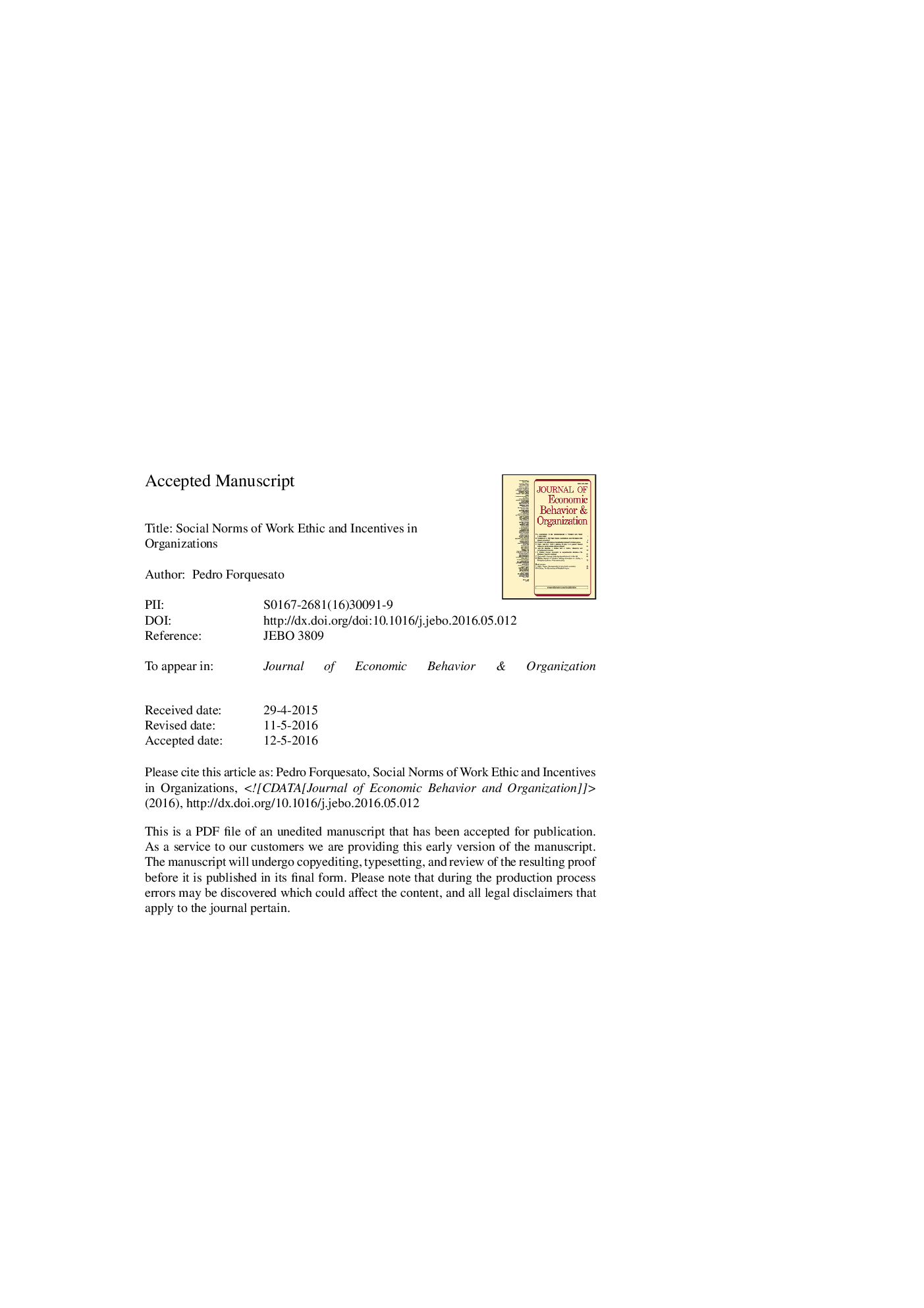| Article ID | Journal | Published Year | Pages | File Type |
|---|---|---|---|---|
| 7242800 | Journal of Economic Behavior & Organization | 2016 | 37 Pages |
Abstract
In this paper, I model the relation between the dissemination of social norms of work effort (work ethic) in a given society and the choice of incentives by firms, and I motivate it by presenting evidence from three different datasets that suggests that work ethic is correlated with the intensity of firms' incentives. When the effort choices of different agents in a firm are complementary, having hard-working coworkers makes an agent more productive. Therefore, in equilibrium, she will work harder. Foreseeing that a work ethic is more useful to hard-working agents, parents will be more willing to transmit it in societies in which the probability that their offspring will have coworkers with strong work ethic is higher. I then expand the model to incorporate the firm technology choice, allowing firms to decide between complementary and separable production processes. In societies with wide dissemination of work ethic, firms will want effort to be complementary (as in modern production processes), while the opposite is true when the dissemination of work ethic is narrow. Finally, I investigate the comparative dynamics of the model.
Related Topics
Social Sciences and Humanities
Economics, Econometrics and Finance
Economics and Econometrics
Authors
Pedro Forquesato,
